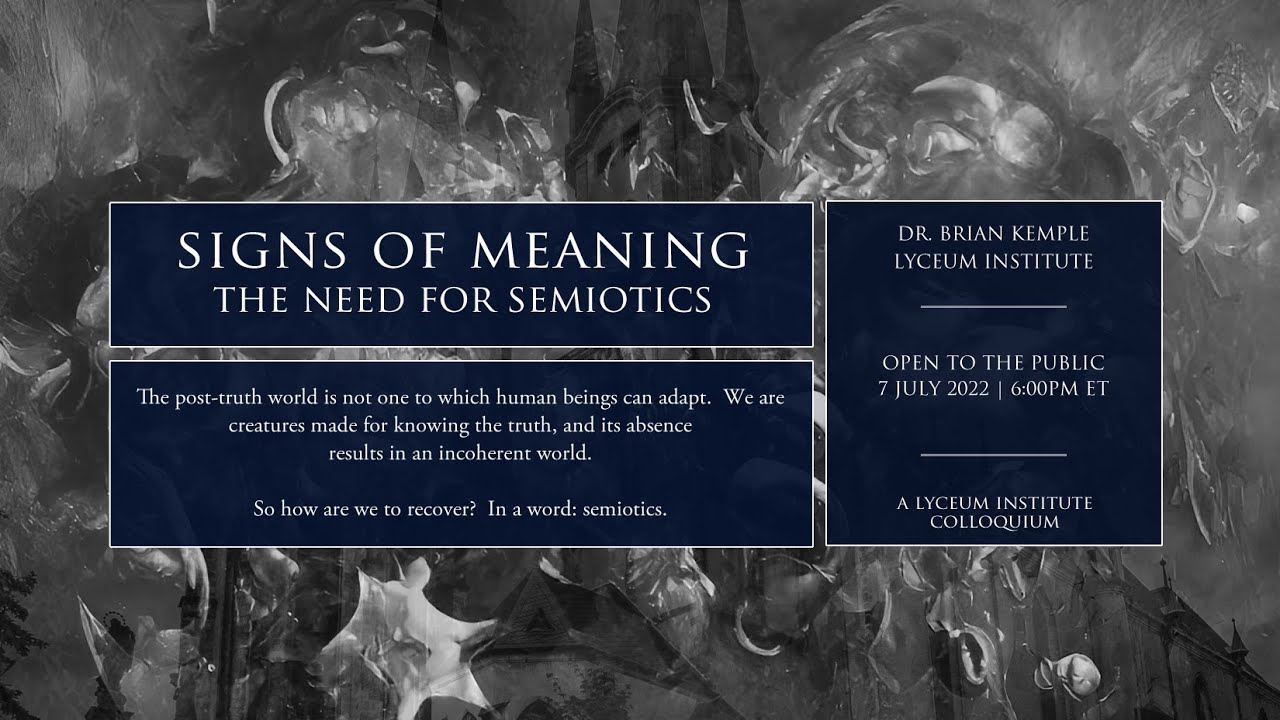Lyceum Institute
Why is semiotics important? Why do we need it?
“Allow me to begin with a prefatory comment: it is difficult to give a presentation on semiotics for two reasons. The first, and perhaps more obvious reason, is that few people know what it really is. It is an unusual word—a word that may sound somehow exciting, but also mysterious. The second, very much related to the first, is that semiotics is at once a relatively new doctrine and yet it subsumes and incorporates and even elevates disciplines very ancient. Its explicit recognition has been rare, but its implicit influence ubiquitous in time and place. Moreover, semiotics brings us face to face with something unknown and yet nevertheless deeply familiar; and perhaps, even, unknown because it is so familiar: namely, signs.
“And so, although the temptation in a presentation such as this—this presentation serving as a certain kind of introduction to semiotics—the temptation is to pass a considerable amount of time traversing the meandering inquiry of what semiotics is—wending through the particularities of its doctrines, its terminologies, its histories—despite this temptation, I will spend relatively little time re-treading those already well-worn steps. There are many books, papers, and presentations already extant which cover the doctrinal, terminological, and historical grounds. Despite these introductions, semiotics remains somewhat mysterious to many. And so I wish today to head in a different direction, and I hope that you all will walk this perhaps even-more meandering path alongside me, for I believe it will give a kind of circumspective view of that well-tread ground, and thereby dispel some of the enigma.”
—
Brian Kemple holds a PhD in Philosophy from the University of St. Thomas, in Houston TX, where he wrote his dissertation under the inimitable John Deely. He is the Founder and Executive Director of the Lyceum Institute. He has published two scholarly books—Ens Primum Cognitum in Thomas Aquinas and the Tradition (Brill: 2017) and The Intersections of Semiotics and Phenomenology: Peirce and Heidegger in Dialogue (De Gruyter: 2019), as well as a number of scholarly articles, popular articles, and his own Introduction to Philosophical Principles: Logic, Physics, and the Human Person (2019) and the forthcoming Linguistic Signification: A Classical Course in Grammar and Composition (2021).
—
https://lyceum.institute/
On Cenoscopy and Idioscopy (Fr. Scott Randall Paine, PhD):
https://realityjournal.org/2021/05/14/article-on-the-cenoscopic-and-idioscopic/
Details for Live Q&A on 7 July 2022 at 6pm ET (New York):
https://lyceum.institute/2022/06/22/signs-of-meaning-the-need-for-semiotics/
